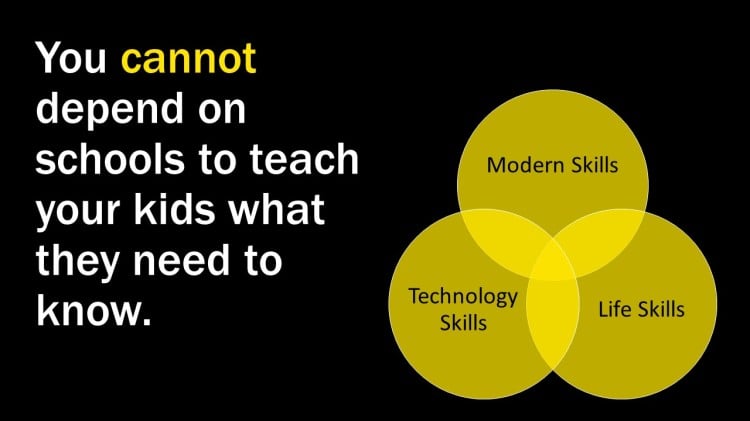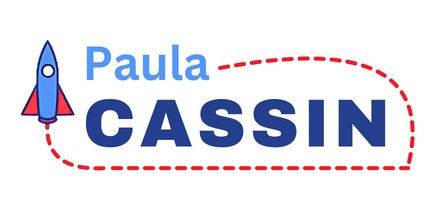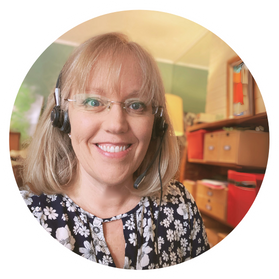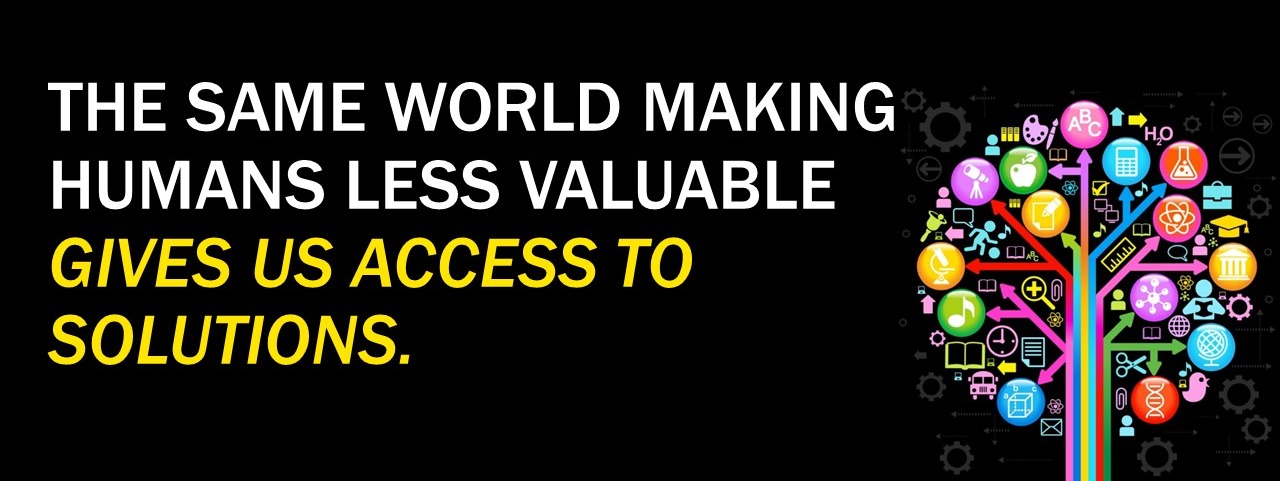
This post was originally published on February 11, 2016.
Thanks to Bruce Dixon of Pecha Kucha Santa Barbara for choosing me to be a presenter at the February event, which happened last night! It was a difficult-but-very-useful-and-rewarding exercise to pare down my thoughts to 20 slides, 6 minutes 40 seconds (Pecha Kucha is 20×20= 20 slides, 20 secs per slide). I got good feedback afterward, which was encouraging as well. Here is part 1 of my slides, along with my speaking notes.

3 months ago at a work conference, I heard Pavan Arora, Director of Content at IBM WATSON spend an hour describing the cognitive computing era we’re entering, knowledge as a commodity, and the amazing ways technology is going to change the world – helping cancer researchers find DNA markers in days/months, rather than years, for example. As example upon example stacked up, it became clear to me that there’s going to be an even bigger divide between low skilled, high substitute jobs (think retail), and highly paid, high skilled jobs.

My next thought was what about my kids? I see my job as a parent is to help them develop skills and qualities that will contribute to a happy, productive life. I was already feeling rather dissatisfied about their schooling, and questioning it. How can I help them get the skills that they’ll need in 10 years, 20 years to thrive? So this talk is about what I see as the problem, the future skills needed, and how to provide kids chances to acquire them.

I started doing a lot of research online, in books etc. and found some decent data, forecasting that yes, some high skilled jobs are at risk of computerization, which is rather new – technology has ALWAYS replaced human labor, first manual labor when we all moved off the farm 100 years ago, more recently we’ve seen outsourcing, automation in middle skilled jobs, but high pay, high skilled jobs aren’t a sure bet either now.

While the average salary of a college grad is higher than those who DON’T go to college, does anyone still think a degree is all you need for success as a grown-up?
Teri put it this way (in her book, The Secular Homeschooler: A Nonreligious Guide for Helping Kids Build Competence, Independence and Ethics Outside of a School Environment), after she graduated with multiple degrees, the ability to do GREAT in school and at university, but no idea how to apply her knowledge in the real world. College is just a starting point now, costs a lot and is losing value as a signal of one’s capabilities.

McKinsey Global Institute says that by 2020, there will be a shortage of 45 million skilled workers worldwide- even though many highly skilled jobs will be computerized, we’re still missing people with skills that organizations need. I think I’d like to have my kids perhaps look at these missing skills, and make sure they have them! Why not be at the high end of value rather than the low end?
http://fortune.com/2015/05/12/how-u-s-companies-can-fill-the-skills-gap
CORRECTION: re-reading the article, I realized it predicts GREATER SKILLED LABOR SHORTAGE than I show on the slide – 40 Mil highly skilled, 45 Mil medium skilled…

There are heaps of studies/conclusions about the skills needed and this is my take on what it boils down to: data analysis – being able to access, assess and implement knowledge on demand, rather than memorizing facts, is the way we’ll tap into big data and solve problems. Problem solving, coming up with new ideas, being self directed, working with others in collaborative environments.
All of these are pretty key to the future of work.
“The jobs are there, but kids applying for jobs don’t have the kinds of skills they need.” Madeline Levine, author of Teach Your Children Well
National Skills Coalition
True Education Reform: Addressing America’s Growing Skills Gap
So when you think of school, do you think of those skills? Data analysis, being self-directed, solving problems? Knowledge used to be locked up in textbooks and teachers' heads, and had to be transferred to kids, but now you can find the answer to a question or look up a fact in a minute or two online.
“We’re operating on a 200- year-old paradigm in a world that needs an entirely different skill set.” Madeline Levine, author of Teach Your Children Well
The education system still is set up to teach facts, and have kids regurgitate them on tests (to show how much you’ve managed to stuff into your brain). Computers are better at this than us, and they’re doing it for us right now!

At his recent talk here in town, Sal Kahn of the Khan Academy pointed out that classes by age/grade, everyone forced to learn at the same pace, grades, teachers telling everyone what to do when – none of this actually helps learning and we don’t need it any more, now that personalized learning is possible. In the past, it wasn’t possible for each student to have their own tutor, work at their own pace, but now you can.

And if that’s too anecdotal and vague for you, there is some decent research saying K-12 isn’t working as well as it used to – surveys of college professors and surveys of employers say fewer students/grades have the skills needed – and guess which skills are on the list? Critical thinking, written communications, work habits, problem solving and research (which touches on data)).

So that’s why I’m not planning to depend on school to develop the skills and learning that my kids need. And I wouldn’t think you’d want to either. What kids need to learn, as well as how and when they learn, needs an overhaul. And while change is underway and gaining momentum, and schools may very well catch up, it won’t happen in time for my kids.
NEXT POST: The good news – solutions are there. The same world that created the problem has millions testing and offering solutions.






